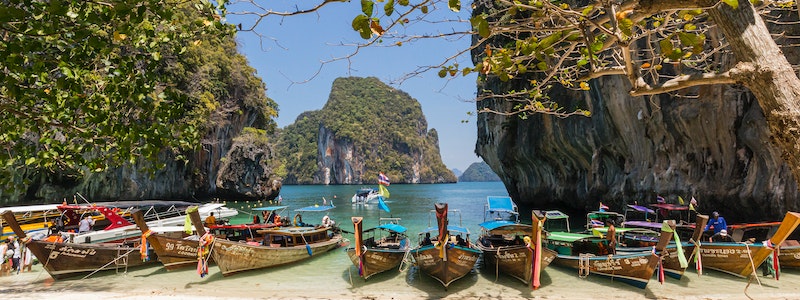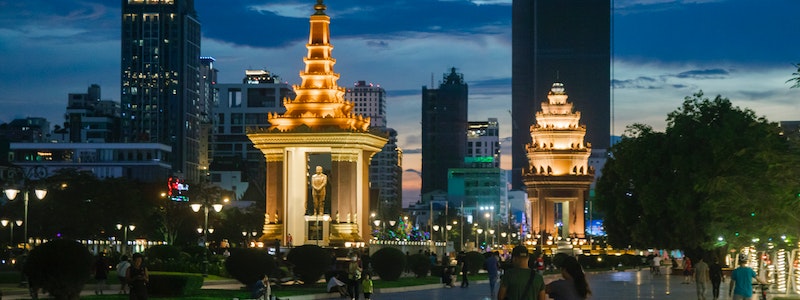
Twenty years ago I worked an office job with four weeks of holiday a year. I already had the travel bug and would maximise my holiday time, travelling for many long weekends and mid-winter vacations. I felt trapped in my job and wanted more freedom to travel. I felt like I was living two lives, one at home in work mode and one when travelling. Against lots of advice from those around me, I planned to quit my job and travel full-time.
Three years later, and for the last 18 years, I’ve spent at least nine months each year travelling and living as a digital nomad. I didn’t have any significant savings or inheritance; when I made the switch, I only had three months of living costs in my bank. I made doable changes and commitments, allowing me to work on the road and travel. As a result, my life changed forever. The freedom and the ability to travel gave me so much peace of mind, wisdom, and education and drastically improved my mental health.
Here’s how I became a full-time traveller and how you can too:
Transition to remote work

At the time, I was fortunate. Although I was in a full-time office job, I’d spent a few years freelancing as a writer. However, I’d not enjoyed freelancing in the past. I had periods of too much work and not enough. I also had problems chasing payments and found it stressful. Instead of rushing back into freelance work, I made a one-year plan to write for myself and build a strong portfolio. During that time, I wrote articles and blogs I was passionate about. I also spent a few hours a week studying copywriting and other helpful writing techniques and did some volunteer writing for charities. By the end of the year, I had a portfolio I was proud of and began advertising for freelance work again.
I also had a lucky break. When I’d built up enough work and was preparing to quit my job, I spoke to the company, and they offered me part-time work I could do remotely. This not only gave me enough work to go fully freelance but also gave me security,
Never has remote work been so common than today. So many employers are now open to remote workers. If you want to transition to remote work, make a plan and allow yourself six months to a year:
- If you have a current job, it may be possible to negotiate the transition to remote.
- If not, brush up on your resume and LinkedIn and start looking for remote work that fits your current skill set.
- If you need to start working freelance, take a year to do free work you are passionate about to build a portfolio and make connections. You should also use this time to study and boost your skills.
- If you have an existing job which can’t transition to remote work, keep this work going while you build your freelance work or find a remote position.
Master your work

When I quit my full-time job and began freelancing, I didn’t immediately start travelling. In fact, during that first year working remotely, I travelled less than the previous years. I was working more than ever and still learning and getting my head around working from home. It took a while to get disciplined and efficient with my work. But I was highly content and loved the freedom of working from home, even if it meant I was working more.
In all honesty, it wasn’t wisdom that stopped me from travelling that first year; it was fear. I was afraid I couldn’t keep all the work going and anxious about travelling so much alone (on most of my other trips, I’d travelled with friends). But in hindsight, resisting travel for that first year was the perfect move. It allowed me to get better at working remotely, raise my value as a freelance writer, and build up more clients. I also made some short solo trips. These helped me to build confidence travelling alone and also allowed me to scope out potential destinations for longer-term travel.
Spend most of your time travelling to low-cost countries

During the third year of the plan, I travelled for 10 months. However, most of the time, I was based in low-cost countries spending less than the previous years in the UK. I was starting to realise that I needed to find places I could make a home base for extended periods. These needed to be safe and affordable, with lots to do and be a launchpad to travel further.
That year I rented an apartment in Bangkok. The condo was much nicer than my home in the UK and one-third of the cost. I was eating out most meals and heading off to other regions or neighbouring countries most weekends. Even with daily living expenses, flights, and hotels at the weekends, my monthly living costs were significantly less.
During those first years of travel, you must find places where you feel safe and at home. Moreover, you need to find a home away from home that falls well within your budget. Countries like Thailand, Cambodia, Laos, and Vietnam offer a richer lifestyle while significantly cheaper. By the end of the third year, I was not only living my dream lifestyle, but I was able to save money most months.
Perfect your lifestyle

Through the wisdom and freedom of travel, I was beginning to look at life differently. By prioritising my lifestyle and the joy of travel, I naturally started to cut down on material possessions and, in turn, reduce my spending. I also began learning local knowledge (where the locals shopped and ate). I learned general travel hacks, doing certain travel in the off-season, finding cheap flights, and maximising the use of loyalty programs and hotel discounts.
I wasn’t living a budget lifestyle. I would always rent plush apartments which offered me lots of light, a comfortable bed, generous works space, and often a spectacular view. I also paid for good travel insurance and usually flew direct rather than using stop-overs to cut costs. However, by the 4th year, I was earning more money than I was spending and began investing these extra savings into stocks, investments, and a pension fund.
I wouldn’t advise switching to a travelling lifestyle on a shoestring budget. However, I learned that you don’t need to earn millions to live like a millionaire. By prioritising travel, living in a safe but low-cost country, and cutting out the need for possessions, gadgets and unnecessary purchases, you can live a good quality life and save money while on a modest freelancer’s income.
Make lots of friends

One of the benefits of travelling and working remotely is that it made me happier and more confident. I also became more adventurous and social. I began making friends everywhere I went. Locals, expats, and other travellers, I constantly connected with other people, some of whom have become close friends over the years.
The great thing about making friends on your travels is that they tend to be like-minded. Whenever I plan a trip to a new country and feel I’d enjoy having company, I have a small group of friends I reach out to, and often 2 or 3 of them will join me. I’m also constantly getting invites to other places to join friends on their trips and visit their home countries.
Making friends while you travel changes everything. Having like-minded people you can talk to and travel with takes your travel lifestyle to a new level. And having lots of open invites to other places gives you many plans and future travel to look forward to.
You can do it too

I honestly believe anyone can change their life and become a full-time traveller. I understand that I had the significant advantage of not being in a committed relationship or having children when I began to travel. But that was a commitment and sacrifice I had to make. With that said, among the friends I’ve made on my travels are several expat couples living abroad and families who follow the travel lifestyle.
There are no rules to say who can and cannot travel. You just need to make your plan and put it into action.




